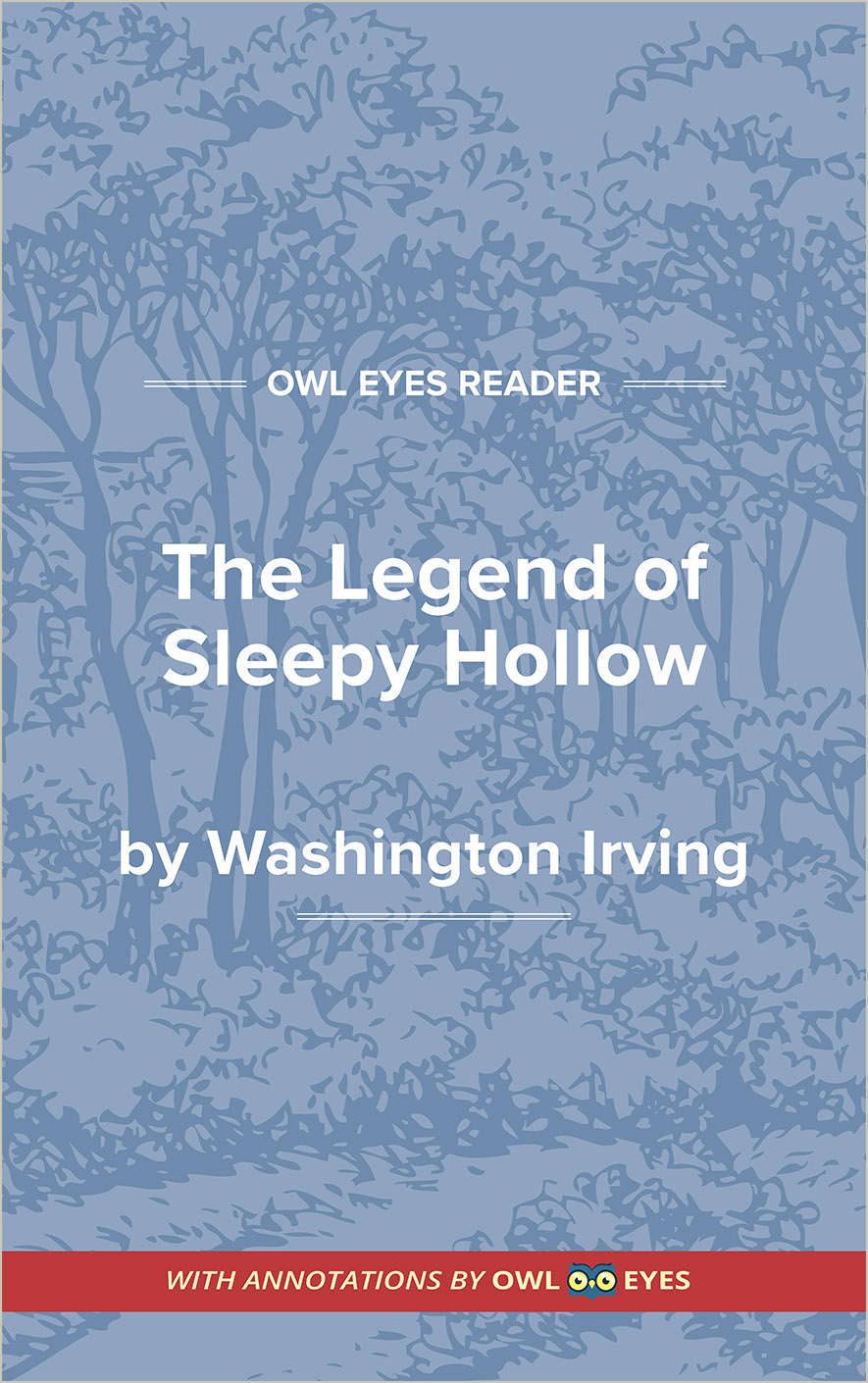Analysis Pages
Character Analysis in The Legend of Sleepy Hollow
Ichabod Crane: Ichabod Crane is a schoolteacher from New York who arrives in Sleepy Hollow to teach the local children and, hopefully, raise his own worldly standing. Unfortunately, Ichabod is out of place and is not a charmer by nature. He is tall, gangly, and, true to his surname, possesses a distinctly birdlike disposition and appearance. His interpersonal manner is often abrasive, and he struggles to veil his desperation in his conversations with others.
Abraham “Brom Bones” Van Brunt: Ichabod Crane’s double, foil, and rival is a young local man named Abraham Van Brunt. Like Crane, Van Brunt’s last name is an aptonym, for he indeed brings his “brunt,” or forcefulness, into every scenario. His nickname, Brom, is also telling in the way it sounds like “brawn.” He is known for his tremendous strength, athletic skill, and physical prowess.
Katrina Van Tassel: While the character of Katrina Van Tassel is key to the plot, she is never fully developed in the narrative. She is the daughter of Balt Van Tassel, a successful Dutch farmer. Katrina is described as spirited and beautiful. She takes delight in the attention of the men, leading on Ichabod Crane in his efforts to woo her.
Character Analysis Examples in The Legend of Sleepy Hollow:
The Legend of Sleepy Hollow
🔒"The cognomen of Crane..." See in text (The Legend of Sleepy Hollow)
"rantipole..." See in text (The Legend of Sleepy Hollow)
"and with all his overbearing roughness, there was a strong dash of waggish good humor at bottom...." See in text (The Legend of Sleepy Hollow)
"He was broad-shouldered and double-jointed, with short curly black hair, and a bluff but not unpleasant countenance, having a mingled air of fun and arrogance...." See in text (The Legend of Sleepy Hollow)
"his heart yearned after the damsel who was to inherit these domains, and his imagination expanded with the idea, how they might be readily turned into cash..." See in text (The Legend of Sleepy Hollow)
"They consisted of two shirts and a half;..." See in text (The Legend of Sleepy Hollow)
"The fireflies, too, which sparkled most vividly in the darkest places, now and then startled him..." See in text (The Legend of Sleepy Hollow)
"No tale was too gross or monstrous for his capacious swallow...." See in text (The Legend of Sleepy Hollow)
"small shrewdness and simple credulity..." See in text (The Legend of Sleepy Hollow)
"and smiling graciously in reply to all his amorous oglings..." See in text (The Legend of Sleepy Hollow)
"How could the flogger of urchins be otherwise than animated and joyous?..." See in text (The Legend of Sleepy Hollow)
"kick any itinerant pedagogue out of doors that should dare to call him comrade!..." See in text (The Legend of Sleepy Hollow)
"Old farmers, a spare leathern- faced race, in homespun coats and breeches, blue stockings, huge shoes, and magnificent pewter buckles...." See in text (The Legend of Sleepy Hollow)
"Cotton Mather..." See in text (The Legend of Sleepy Hollow)
"Certain it is, his voice resounded far above all the rest of the congregation..." See in text (The Legend of Sleepy Hollow)
"in the true style of a cavalier..." See in text (The Legend of Sleepy Hollow)
"he had various ways of rendering himself both useful and agreeable...." See in text (The Legend of Sleepy Hollow)
"and on holiday afternoons would convoy some of the smaller ones home, who happened to have pretty sisters, or good housewives for mothers..." See in text (The Legend of Sleepy Hollow)
"he administered justice with discrimination rather than severity..." See in text (The Legend of Sleepy Hollow)
"Ichabod..." See in text (The Legend of Sleepy Hollow)
"by inflicting a double portion on some little tough wrong-headed, broad-skirted Dutch urchin..." See in text (The Legend of Sleepy Hollow)
"some scarecrow..." See in text (The Legend of Sleepy Hollow)

